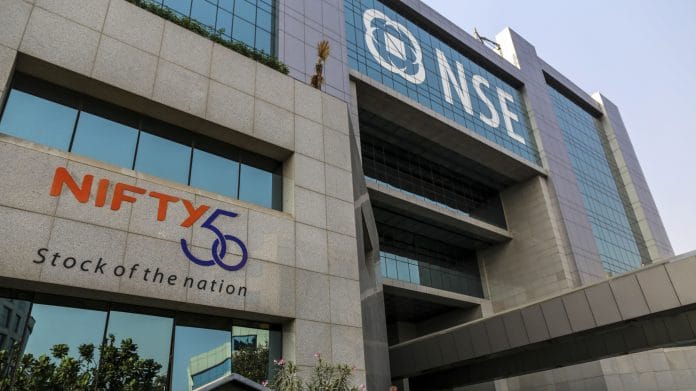New Delhi: As Covid-19 continues to ravage India, financial professionals across the country are grappling with an increasingly surreal disconnect between the epidemic’s devastation and a record-breaking boom in local markets.
The world’s worst coronavirus outbreak has battered India’s economy and lifted its official Covid death toll to more than 315,000 — a figure that experts say is likely a significant undercount.
And yet investors continue to snap up Indian assets, fueling a 65% rally in the Nifty 50 Index over the past 12 months that has outpaced every other major equity benchmark worldwide. The measure’s surge to a record on Thursday has coincided with the fastest rate of Indian initial public offerings since 2017 and an unprecedented flood of foreign-currency bond issuance by local companies.
While the combination of pandemic pain and financial-market euphoria is hardly unique to India, nowhere else has the contrast been so extreme.
Bulls say the gains are justified by central bank stimulus at home and abroad, along with signs that the current virus wave may be peaking and optimism that India’s long-term economic growth potential will emerge from the crisis intact. Skeptics point to overly rosy earnings estimates and the risk of further outbreaks in a country where vaccination rates remain stubbornly low. India’s central bank weighed in on Thursday, warning in its annual report that the surge in stocks “poses the risk of a bubble.”
What’s clear is that financiers on all sides of the debate are stretched thin. Booming markets have left the industry swamped with work at a time when many employees have been sickened by the virus. Some have had to franticly search for medical help after hospitals were overrun and oxygen supplies fell short. Almost everyone has at least one friend or family member who has died.
“You feel numb, as if we are in the midst of a war and are losing people one after the other,” said Vikaas Sachdeva, the Mumbai-based chief executive officer of Emkay Investment Managers Ltd., who lost four members of his extended family to the virus.
Also read: 2nd Covid wave impact on economy can be limited to Q1 if cases keep falling, vaccines key: RBI
Sachdeva expects Indian markets to be volatile in the near term as investors weigh uncertainties around the vaccination program and the possibility of a third wave. His firm has been buying shares of Indian companies with “high quality” management, betting that the country’s long-term investment case remains intact.
India’s $2.9 trillion stock market has been buoyed in part by resilient demand from international investors, who’ve purchased a net $34.9 billion of shares over the past 12 months. While they pared holdings in April and early May, buying by local mutual funds and insurance companies has helped fill the gap. A steady decline in reported Covid cases since mid-May — along with Prime Minister Narendra Modi’s decision to avoid another nationwide lockdown — have added weight to calls for further market gains.
Indian companies have taken advantage of the exuberance in markets to raise about $4 billion via public offerings since the start of the year, on track for the busiest first-half since 2017, according to data compiled by Bloomberg.
“The IPO boom is being driven by Indian technology companies coming of age with businesses doing better than expected,” said Sunil Khaitan, India head of global capital markets at Bank of America. “Tech companies are advancing their fundraising plans and financial sponsors also believe this is a good time to bring in public market investors in these companies amidst ample global liquidity.”
Khaitan expects India IPO volumes to more than double in 2021 from the previous year.
The surge in activity has left some financial firms scrambling to complete deals after employees were sidelined by the virus. The head of equity capital markets at a Mumbai-based investment bank, who asked not be named discussing private matters, said that at one point 25% of his 40-person group was infected.
About 200,000 Indian bank employees have been infected and 1,200 have died since the pandemic began, the industry’s largest union estimated this month.
Among the biggest risks for India market optimists is another virus wave. Just 3.2% of the population has been fully vaccinated, versus 39.7% in the U.S. and 10.1% in Brazil, according to Bloomberg’s Covid-19 Tracker.
The Indian economy’s recovery from last year’s recession is already showing signs of sputtering. India lost 10 million jobs in May, according to private research firm Centre for Monitoring Indian Economy Pvt. Among the 40 companies in the Nifty 50 index that have posted quarterly results so far, more than half have missed analysts’ estimates. While India’s central bank predicts the economy will grow at a 10.5% pace this fiscal year, other forecasters including S&P Global Ratings and Moody’s Investors Service have recently cut their estimates to below 10%.
“If this Covid situation keeps affecting newer areas and new strains keep emerging, then there is a problem for the near term,” said Deepak Jasani, head of retail research at HDFC Securities Ltd.
Sachdeva, the Emkay CEO, said Covid will impact him and his colleagues in ways that go far beyond their work in finance. He’s reading “The Difficulty of Being Good” by Gurcharan Das, who writes about his search for a meaningful life.
“The pandemic has brought about a change in many of us and we are more aware of things that matter most in life,” Sachdeva said. “We would though have to see if this is indeed a permanent change when life comes back normal.”- Bloomberg
Also read: Indian fuel companies don’t know when demand will pick up again






